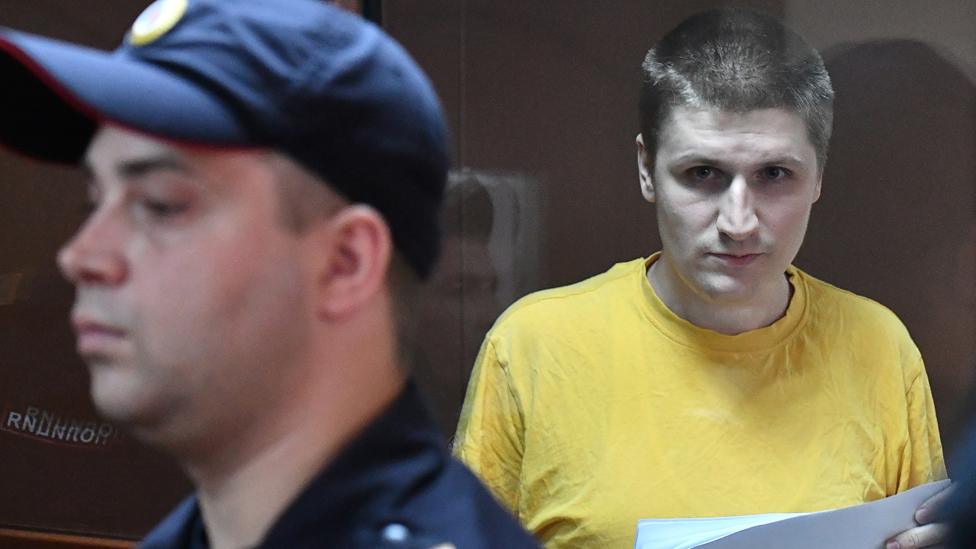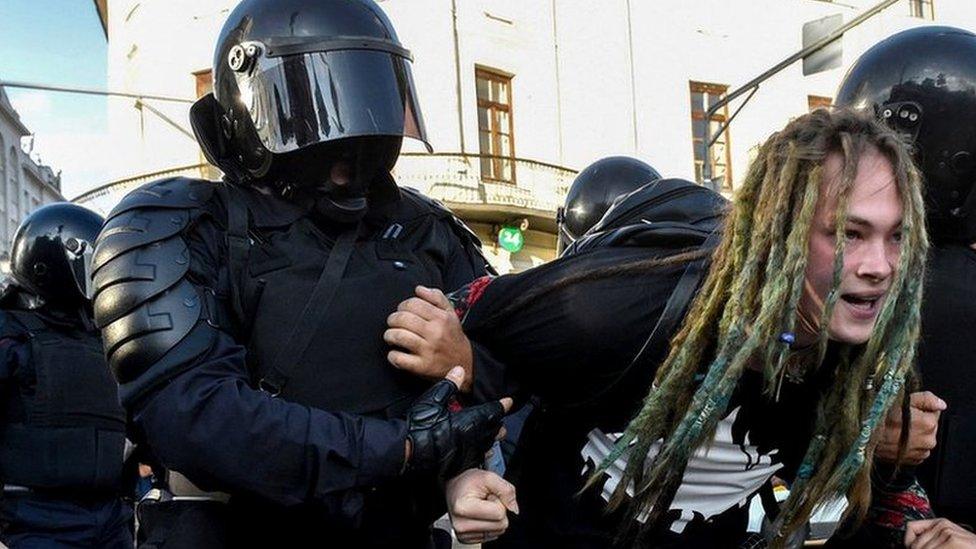Russian blogger Sinitsa jailed for 'incitement' tweet
- Published

Sinitsa's tweet was part of a Twitter discussion about identifying police officers
A Moscow court has sentenced a Russian blogger, Vladislav Sinitsa, to five years in a labour camp for a tweet in which he allegedly called for violence against police officers' children.
Sinitsa was found guilty of "inciting hatred and enmity".
In the tweet, under the Twitter handle @Max_Steklov, external, Sinitsa commented on calls to identify police officers who were detaining opposition activists.
Sinitsa denied the charge, saying his tweet had been misinterpreted.
He himself called the tweet "slightly rude and unethical", but pointed out that Twitter had not removed it as a violation of the platform's rules. Sinitsa is a 31-year-old financial manager from Lyubertsy, in the Moscow suburbs.
The tweet, posted on 31 July, was a reply to a Twitter user called @spacelordrock, external. Sinitsa's tweet said: "They'll look at the sweet, happy family photos, they'll study the geolocation, and then the child of the courageous law enforcement officer one day simply doesn't return from school. Instead of the child comes a parcel containing a CD with a snuff video. It's as if you were only just born, asking questions like that!"
Sinitsa was arrested on 3 August at an unauthorised Moscow rally in support of independent opposition candidates barred from the city council election. According to some reports, more than 1,000 people were arrested that day.
The identity of @spacelordrock was not clear, but they claim in their Twitter profile to be "an ideological heterosexual, defender of the disadvantaged, an orthodox rocker".
The tweet that triggered Sinitsa's tweet said: "The wretches quite seriously figure out the identities of police and OMON [special forces] by using the Saturday pictures and photos from social networks. Well, I'd just like to know how those cowardly, puny wimps plan to take revenge on them. Oh, but you mustn't bully them. Next time they might not be so nice and polite."
Hundreds of people were detained in a wave of demonstrations this summer, triggered by the exclusion of opposition candidates from the 8 September Moscow election.
Students are trying to raise money and hire lawyers for those still in jail
In court, Sinitsa said: "I actually don't understand what I'm being accused of, I categorically deny guilt! I never had any intention to stir up any hatred towards anyone... I object to any use of violence.
"I consider that all my statements were ripped out of context and interpreted by investigators incorrectly, to say the least."
In recent years, Russians have been increasingly prosecuted for their activity on social media, according to an international human rights group, Agora. It says 411 criminal cases were brought against internet users in Russia in 2017 - up from 298 cases in 2016.
In most cases users are accused of extremism. It is an offence that may include: "inciting hatred and animosity"; "rehabilitation of Nazism"; "calls to separatism" or "insulting believers' feelings".
- Published30 August 2019
